Contents
Voltaire
TREATISE ON TOLERATION
Translated and with an Introduction and Notes by
DESMOND M. CLARKE
PENGUIN CLASSICS
UK | USA | Canada | Ireland | Australia
India | New Zealand | South Africa
Penguin Books is part of the Penguin Random House group of companies whose addresses can be found at global.penguinrandomhouse.com.
First published in French as Trait sur la Tolrance, A loccasion de la mort de Jean Calas, 1763
First published in Penguin Classics 2016
Introduction, notes and translation copyright Desmond M. Clarke, 2016
Cover: detail from The Saint Bartholomews Day Massacre of Protestants, August 24, 1572, by Franois Dubois, in the Muse des Beaux Arts, Lausanne (Photograph Dagli Orti/The Art Archive)
All rights reserved
ISBN: 978-0-241-23663-5
PENGUIN

CLASSICS
TREATISE ON TOLERATION
VOLTAIRE was the assumed name of Franois-Marie Arouet (16941778). He was educated at the Jesuit college of Louis-le-Grand, Paris, and studied law briefly before pursuing a career as a writer. He spent two periods locked up in the Bastille before emigrating to England, where he lived from 1726 until 1729; during this period he was influenced by John Locke and Sir Isaac Newton, and by the official toleration of different religions in England. His Letters concerning the English Nation (1733) reflect his favourable opinion of English culture and politics, but when a French edition was published clandestinely in France in 1734 it was banned and burned publicly. Often banished from Paris or on the run from threats of arrest, Voltaire spent the years 1734 to 1749 at Cirey in Champagne with his mistress Mme milie du Chtelet, with whom he shared many intellectual projects, including the introduction of Newtons physics to France. Famous for his poem in honour of Henri IV, La Henriade (1723), for numerous plays that were produced at the Comdie Franaise, and for his satirical novels, especially Candide, Voltaire became the best-known intellectual in Europe and was widely acknowledged to be the voice of the French Enlightenment. The Treatise on Toleration (1763) was written as part of his public campaign on behalf of the executed Huguenot shopkeeper Jean Calas, while his Dictionnaire philosophique portatif (1764) was more popular than the massive volumes of the Encyclopdie (175172), to which he also contributed. Following the sudden death of Mme du Chtelet, Voltaire spent time at the court of Frederick the Great in Potsdam, and subsequently lived near Geneva and, from 1759 until his death, near the FrenchSwiss border at Ferney. He returned briefly to Paris in 1778 for the production of his play Irne, and died there on 30 May 1778.
DESMOND M. CLARKE is Emeritus Professor of Philosophy at the National University of Ireland, Cork, and a member of the Royal Irish Academy. His publications include Descartess Theory of Mind (2003), Descartes: A Biography (2006) and The Equality of the Sexes: Three Feminist Texts of the Seventeenth Century (2013); he is also general editor (with Karl Ameriks) of Cambridge Texts in the History of Philosophy. He translated two volumes of Descartess works for Penguin Classics, Meditations and Other Metaphysical Writings (1998) and Discourse on Method and Related Writings (1999).
THE BEGINNING
Let the conversation begin
Follow the Penguin Twitter.com@penguinUKbooks
Keep up-to-date with all our stories YouTube.com/penguinbooks
Pin Penguin Books to your Pinterest
Like Penguin Books on Facebook.com/penguinbooks
Listen to Penguin at SoundCloud.com/penguin-books
Find out more about the author and
discover more stories like this at Penguin.co.uk
Chronology
1694 21 November: Born Franois-Marie Arouet, in Paris, youngest child of a notary.
1701 Death of his mother.
170411 Educated at the Jesuit college of Louis-le-Grand, Paris.
1712 Studies law briefly.
1713 Secretary to the French ambassador in the Netherlands at The Hague; begins an affair with French Protestant refugee Olympe Dunoyer, which leads to his dismissal.
1715 Death of Louis XIV; Philippe, duc dOrlans becomes Regent of France until 1723, during the minority of Louis XV.
171718 Imprisoned in the Bastille for scurrilous writing.
1718 Adopts the name Voltaire; performance of his first tragedy dipe.
1721 Death of his father.
1723 Louis XV crowned; publishes La Ligue, which is later published (1724) as La Henriade (in honour of Henri IV); contracts a near fatal dose of smallpox.
17269 Imprisoned briefly in the Bastille, and emigrates to London, where he meets Congreve, Samuel Clarke, Bolingbroke, Pope, reads Swift, and is influenced by Locke and Newton.
1729 Returns to France, lives briefly in Dieppe.
172930 Joins with others to buy all the monthly tickets in the Paris lottery and becomes very rich.
1733 Letters concerning the English Nation published in London.
1734 French edition of the Letters published clandestinely by two different printers as Lettres philosophiques, which is condemned and burned by the parlement of Paris. Goes to live at Cirey in Champagne with his mistress Mme milie du Chtelet.
1738 Publishes a clandestine edition of lments de la philosophie de Newton.
174048 War of the Austrian Succession; concludes with the Treaty of Aix-la-Chapelle.
1741 Voltaires play Le Fanatisme, ou Mahomet le Prophte is produced in Lille.
17435 In favour with the royal court, appointed Royal Historian (1745).
1746 Elected member of the Acadmie franaise and appointed Gentleman in Ordinary to the King.
1748 The novel Zadig, ou la Destine published.
1749 Mme du Chtelet dies of puerperal fever, following the birth of her daughter.
175053 At the court of Frederick the Great.
1751 Publishes Le Sicle de Louis XIV, a history of the kings reign.
1755 Settles at Les Dlices, near Geneva.
1756 Publishes Essai sur les murs.
1759 Publishes Candide, ou lOptimisme; moves to Ferney, near the FrenchSwiss border.
1762 Begins the public campaign to rehabilitate the executed Huguenot shopkeeper Jean Calas.
1763 Publishes Trait sur la tolrance.
1764 Publishes Dictionnaire philosophique portatif.
1765 English translation of the Dictionnaire published as The Philosophical Dictionary for the Pocket
1766 Publishes a commentary on the Italian criminologist Cesare Beccarias

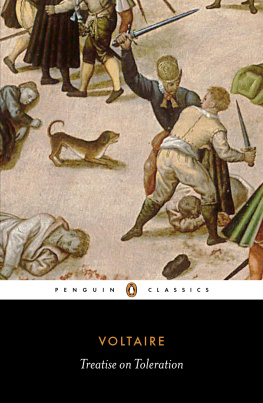
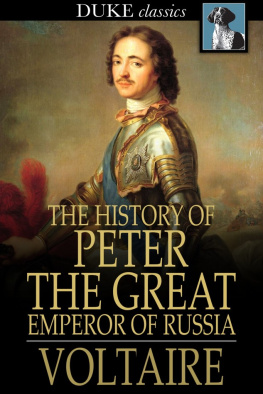
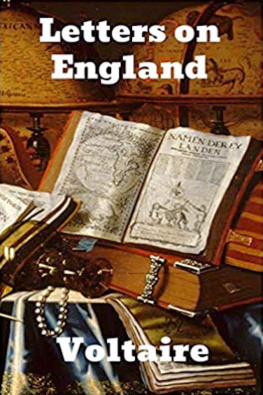
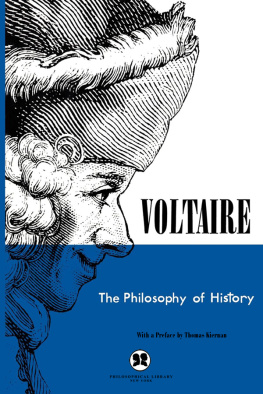


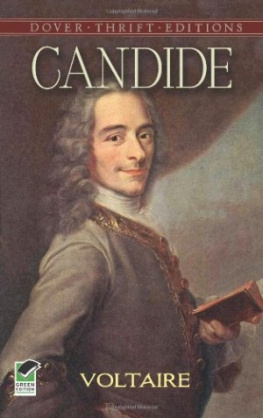

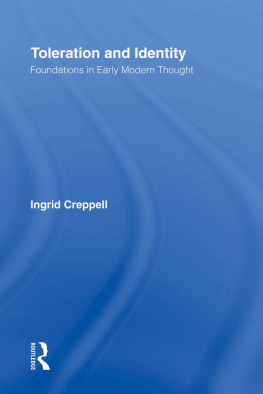
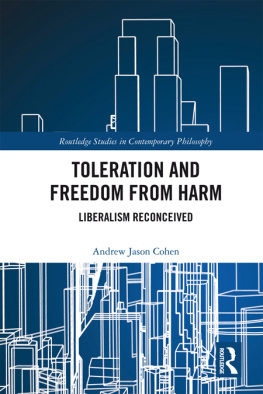
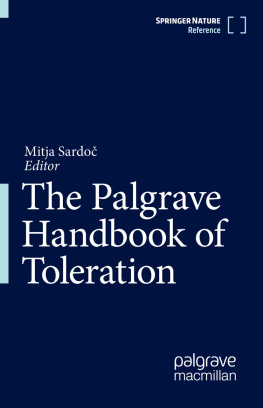
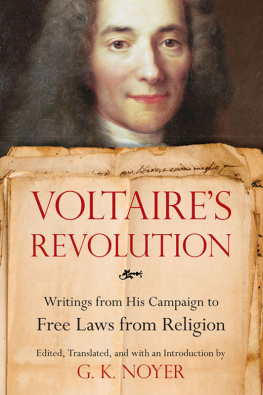
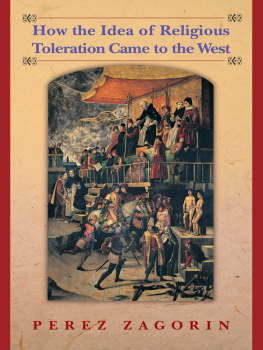
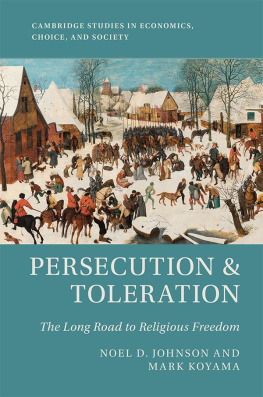
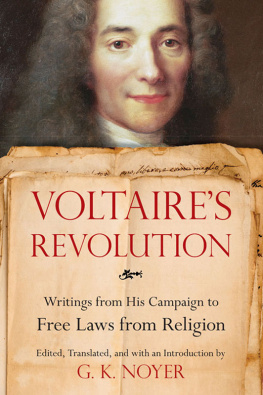




 CLASSICS
CLASSICS